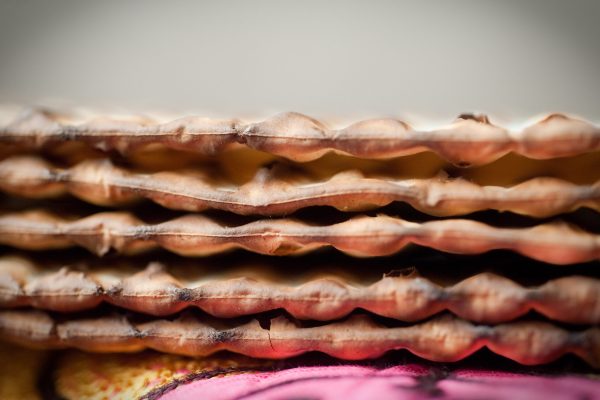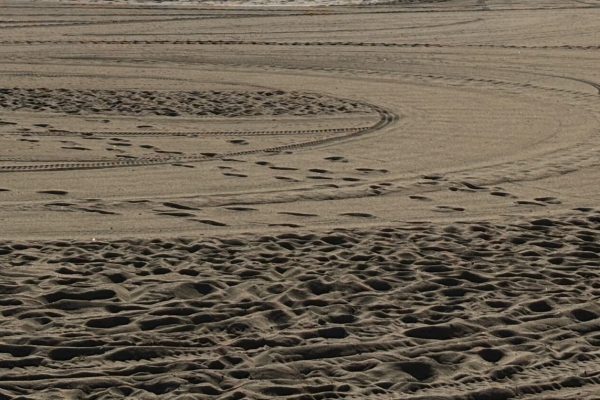No one is watching the clock tonight,
but if I am up too late
tonight I’m glad to lose track of time.
Thirty bodies fill the house with warmth
for the Passover Seder,
thirty young old newly-married newly-born family members
filling every inch of the longest table
& the extra table,
“always room for one more,”
love simmering bowl to bowl
as soup does,
warming & warming the soul.
Freshly showered, smiling eagerly like children at a birthday party
or sitting quietly
depending on temperament,
they turn each page into a debate for the sake of heaven
questioning & probing
the words laid bare,
though the same each year:
some gefilte fish, matzah, a few peppers,
a banquet of no good answers.
I can’t help feeling grateful.
I’m drunk on salty, drunk on memory,
drunk on knowing what survived
almost impossibly: if anything’s a miracle at all
it was salvation
out of the night, out of the narrowest place,
the people leaving step by step
like a local parade,
every mother & child & prophet & friend a miracle,
when all those years ago,
there was nothing
but task-masters, clay bricks, babies who never breathed,
the Haggadah from Maxwell House counting
More than 10 plagues, or bitter herbs—
still instructing to pour out your wrath, still angry,
testament to the fact
that nothing makes you more alone, no one can abandon you
like your own God.
I’ll never forgive it.
I ponder the foods I see on the table,
each symbol intentional—
parsley & matzah from Manischewitz,
or “comfort food for the soul,”
small plates with sliced pickles my mother freed from a tin can,
over-the-top dishes with blue six-pointed stars and gold trim,
passing the brass hand-washing cup & parsley,
chanting dayenu enough,
stories of great rabbis who stay up all night expounding & students
reminding them to pray,
rapping at the their doors and pointing towards the sun,
ancient scripts for gifts of first fruits
for priests or God—-
My father was a wandering Aramean,
Effusive words of praise, hallelujah
prayer so genuinely ecstatic,
I hold my breath,
white porcelain cup for Elijah the prophet, bringing messiah,
gold for Miriam, who gets only well water
older sister who wrote poetry, like me,
for she remembered the timbrels,
Someone sneaking to the kitchen to warm the tzimmes
to ladle the soup, plate the brisket,
dress the salad & slice the white hearts of palm from the jar,
children with wide eyes the shape of full moons
stealing candies, or an afikomen,
young enough to have never heard of slavery & heartbreak,
whose spirits have not yet been broken,
whose every breath seems to say:
I believe in miracles, I still know freedom,
and may you too find freedom through us,
may you teach us what you saw,
may we always remember & may we never understand.










